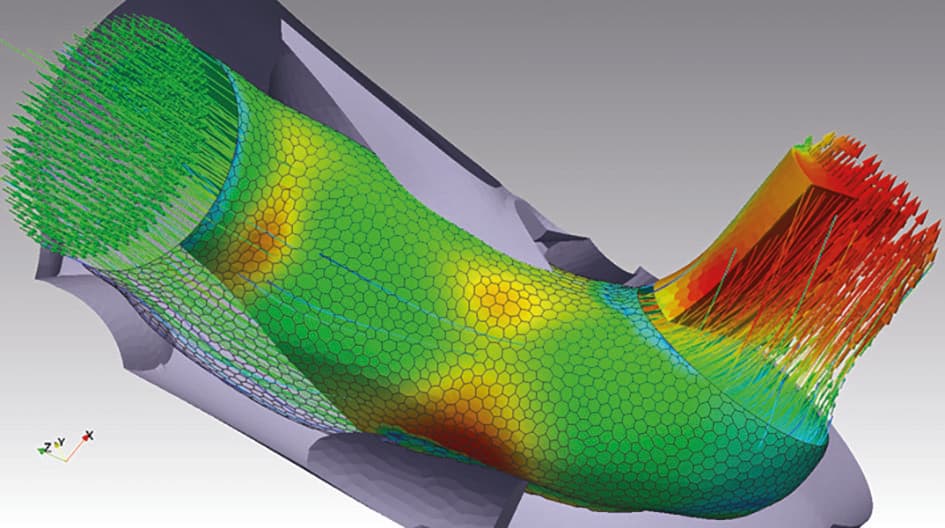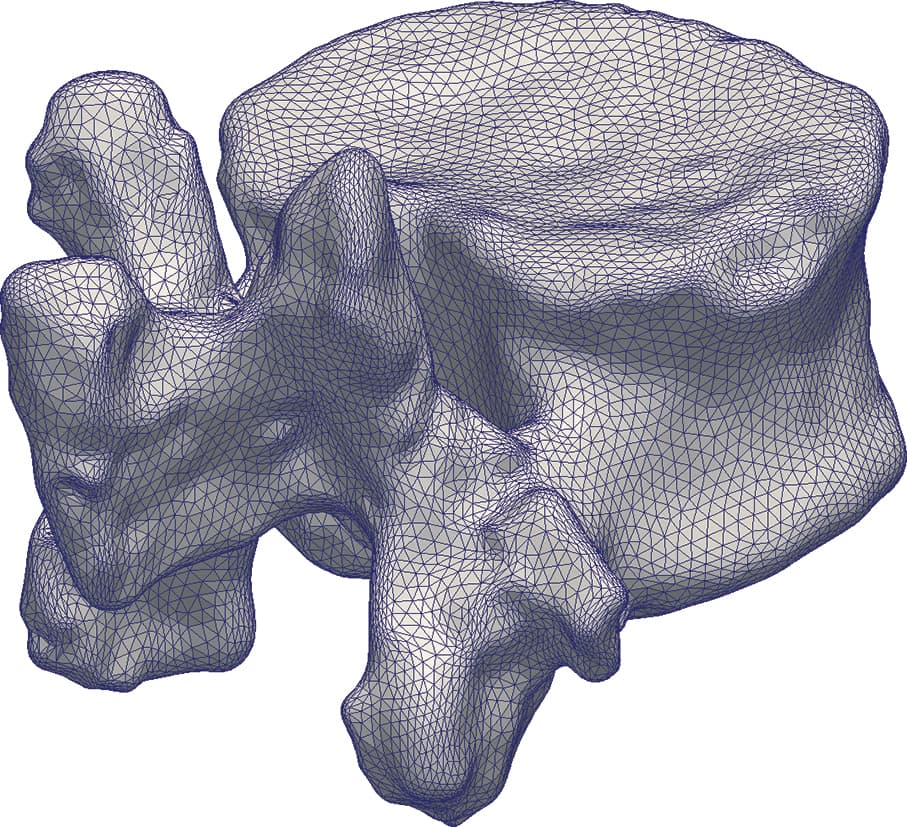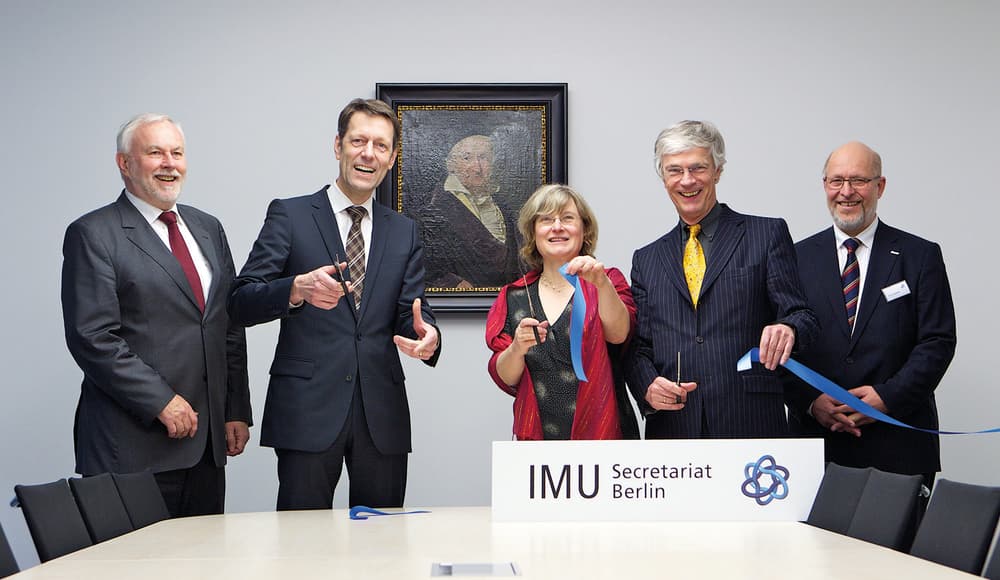All rights reserved.
Motivated by current challenges in technology, economics and business, medicine, science, and society at large, the Weierstrass Institute for Applied Analysis and Stochastics (WIAS) conducts project-oriented research in applied mathematics. In its daily routine, WIAS addresses the entire solution cycle from mathematical modelling, analysis, and simulation to optimization – always in close interaction with practitioners or scientists from other disciplines. Moreover, one of its strengths is the interplay of applied analysis and stochastics, which puts it right at the center of the state-of-the-art in applied mathematics. Many of the analytical findings at WIAS lead to the development of solution algorithms and subsequently software packages. In this respect, WIAS’s software engineering and licensing strategy targets both academic partners and industry-based users. The sustainable dedication to problem solving and software development is only possible due to WIAS’s extraordinarily motivated scientific staff with different career directions, located in a unique working environment near the Gendarmenmarkt right in the center of Berlin, Germany.
The various research activities of WIAS unfold around certain main research areas, which address current societal challenges such as the sustainable use of energy, the advance of medical technology, the development of next-generation materials, and the reliable extraction of information from data. Driven by its operation at the forefront of mathematical science and in close interaction with its scientific advisory board and other stakeholders in the German Federal Ministry for Education and Research as well as Berlin’s Senate Chancellery, WIAS continuously scrutinizes the relevance of its main research areas and develops adjustment strategies accordingly. Currently, the specific focus areas are:
Conversion, storage, and distribution of energy;
Flow and transport;
Material modelling;
Nano- and optoelectronics;
Optimization and control in technology and economics;
Quantitative biomedicine.
Shape-optimised exhaust pipe
©All rights reserved.
The institutional scientific staff organization is structured into research groups, which are typically oriented by mathematical or physical field. Currently, eight groups are installed, with the following respective focal points:
Partial Differential Equations;
Laser Dynamics;
Numerical Mathematics and Scientific Computing;
Nonlinear Optimization and Inverse Problems;
Interacting Random Systems;
Stochastic Algorithms and Nonparametric Statistics;
Thermodynamic Modelling and Analysis of Phase Transitions;
Nonsmooth Variational Problems and Operator Equations.
Mesh of a spinal bone calculated with WIAS mesh generator software TetGen
©All rights reserved.
While no specific time period is fixed, these research groups are typically expected to operate on a mid- to long-term basis. In order to flexibly explore novel topics and to advance young scientists into group leader positions, WIAS has installed the Flexible Research Platform, which also helps to foster and host temporary research projects, financed, e.g., by the European Research Council, the Leibniz Association, or similar.
Within Berlin, WIAS has been a reliable partner for excellence projects such as the DFG Research Center MATHEON, the Einstein Center for Mathematics Berlin, or the current Cluster of Excellence MATH+ financed by the German Excellence Strategy. These activities have always been complemented by participation in DFG collaborative research centers established for up to twelve years at one or several of the Berlin universities or the University of Potsdam. In addition, WIAS structurally collaborates closely with Berlin’s three major universities, the Freie Universität, Humboldt-Universität, and Technische Universität Berlin, for example in terms of joint appointments, supervision of students and research-oriented teaching.
On a national scale, the Institute is a member of the Leibniz Association, an umbrella organization currently connecting 96 independent research institutions ranging from natural, engineering and environmental sciences to economics, spatial and social sciences and the humanities. Consequently, WIAS is subject to a transparent, independent evaluation procedure installed by the Leibniz Senate. Such evaluations take place routinely every seven years. Among other things, the evaluation focuses on how the institution has developed in the intervening years, in particular in terms of overall scientific content, structure, and future plans. Because of its importance and system-relevance for Germany and its international competitivity, like other Leibniz institutions, WIAS receives its core-funds jointly from Germany’s central and regional governments. The Institute actively participates in collaborative structures of the Leibniz Association such as the Leibniz Network Mathematical Modelling and Simulation (coordinated by the WIAS) or the Leibniz Research Alliance Health Technologies.
Supplementing its basic public funding, the Institute successfully raises funds from a variety of competitive funding programmes as well as from industry and economy. In particular, in recent years it won one ERC Advanced Grant, one ERC Consolidator Grant and three ERC Starting Grant projects with the corresponding research carried out at WIAS. Also on the national scale, the Institute is actively involved in many special research activities, priority programmes, research training groups such as the German Research Foundation (DFG), and programmes funded by the Federal Ministry of Education and Research (BMBF), etc.
In addition to the actual mathematical research, the Institute also actively engages in overarching challenges such as the handling and sustainable use of mathematical research data following the FAIR-principles. In this respect, WIAS is currently coordinating the Mathematical Research Data Initiative which is contributing to the German “National Research Data Initiative”.
IMU President Ingrid Daubechies inaugurates the IMU Secretariat in Berlin in January 2011 (Photo: Kay Herschelmann)
©All rights reserved.
While the FAIR (= findable, accessible, interoperable and reusable) handling of research data is of importance for all sciences dedicated to a modern open research and access policy, WIAS will continue striving to prolong and possibly expand its position in excellence of mathematical research. In particular, the interplay of analysis, stochastics, simulation, and optimization in mastering the transition from a fossil fuel-based energy system to one with a vast portfolio of renewable energy carriers along with optimal distribution and storage will be one of the future target areas of WIAS. This is also true for the extraction of information from data of various kinds and the incorporation of data-driven models into its research workflow, as well as for challenges in quantitative biomedicine, in particular medical imaging. In the field of “Material, Light and Devices”, research on quantum-technological aspects will be pursued.
WIAS is a part of high calibre national and international institutional activities. First and foremost, it proudly hosts the Secretariat of the International Mathematical Union (IMU) as one of its program units and supports the IMU in its globally important, fascinating activities to the best of its abilities. The main office of the German Mathematical Society (DMV) is located at WIAS. Within the EMS, the Weierstrass Institute is a member of ERCOM (European Research Centres on Mathematics). It is likewise an active member of ECMI (European Centres on Mathematics in Industry).
Some historic facts and current figures
WIAS was established on January 1, 1992. It originated from the former Karl Weierstrass Institute for Mathematics of the GDR Academy of Sciences. The founding committee was headed by Karl-Heinz Hoffmann. The back-then new Institute was provisionally directed by Herbert Gajewski until Jürgen Sprekels was appointed as its director in April 1994. Since the beginning of 2016, it has been headed by Michael Hintermüller. The Institute currently employs around 150 people, among them 120 scientists at various career levels, ranging from PhD students to senior scientists, and jointly appointed professors. The daily work of WIAS benefits from its well-trained administrative and IT staff.
Cite this article
Michael Hintermüller, The Weierstrass Institute for Applied Analysis and Stochastics (WIAS) in Berlin. Eur. Math. Soc. Mag. 120 (2021), pp. 45–47
DOI 10.4171/MAG/24


